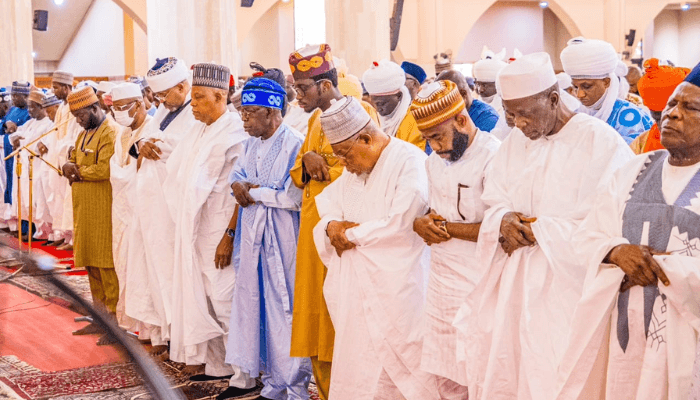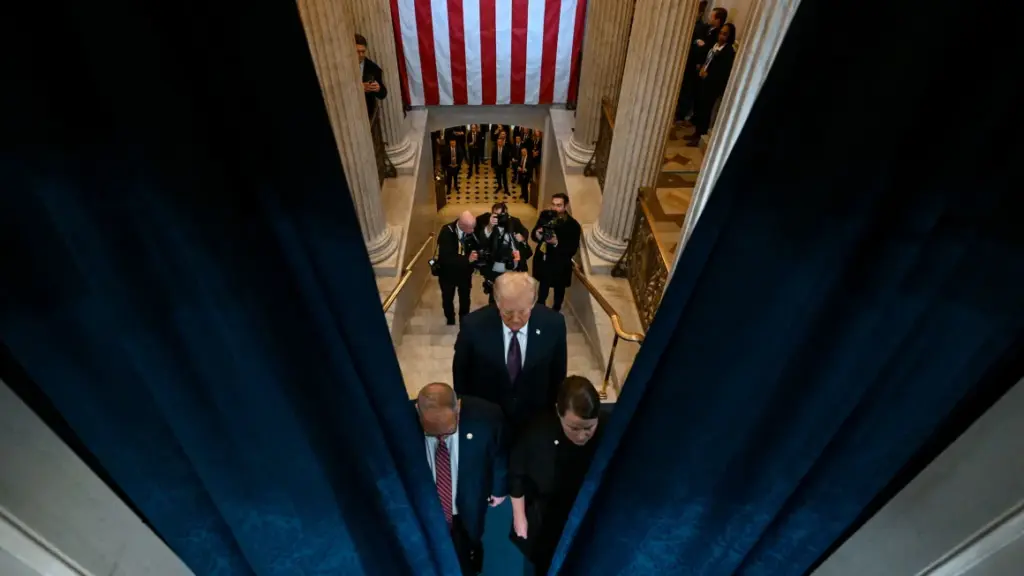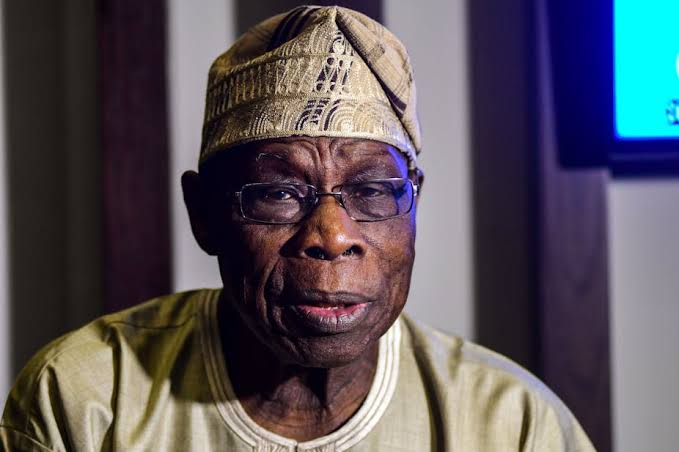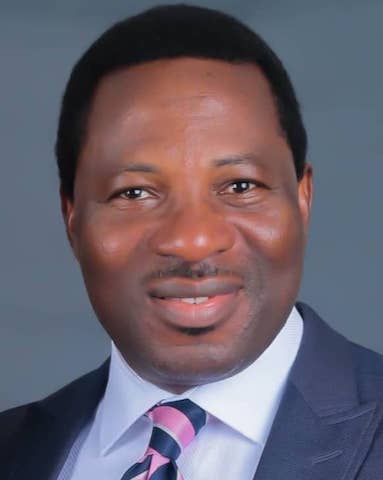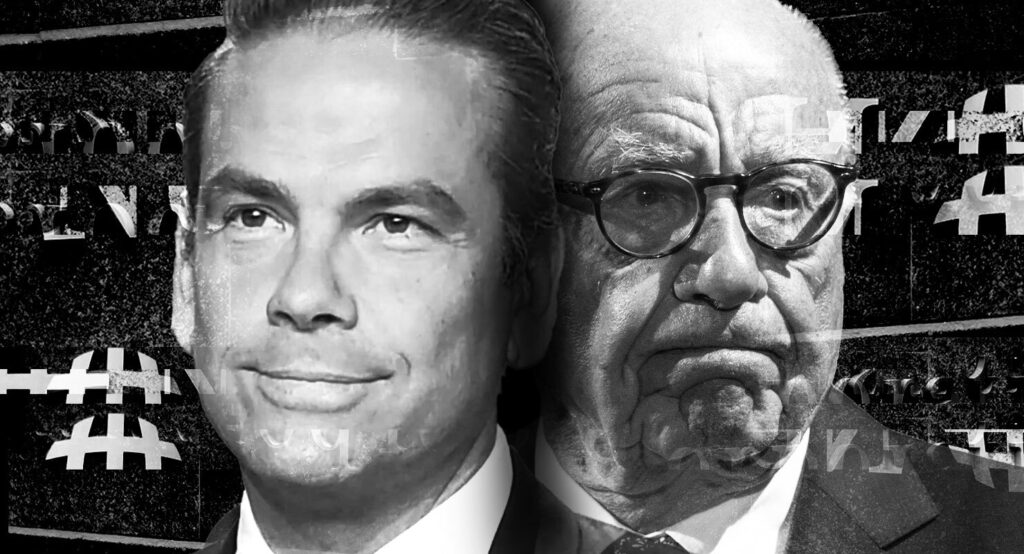The Fight Over Truth in a Blue-Collar Pennsylvania County
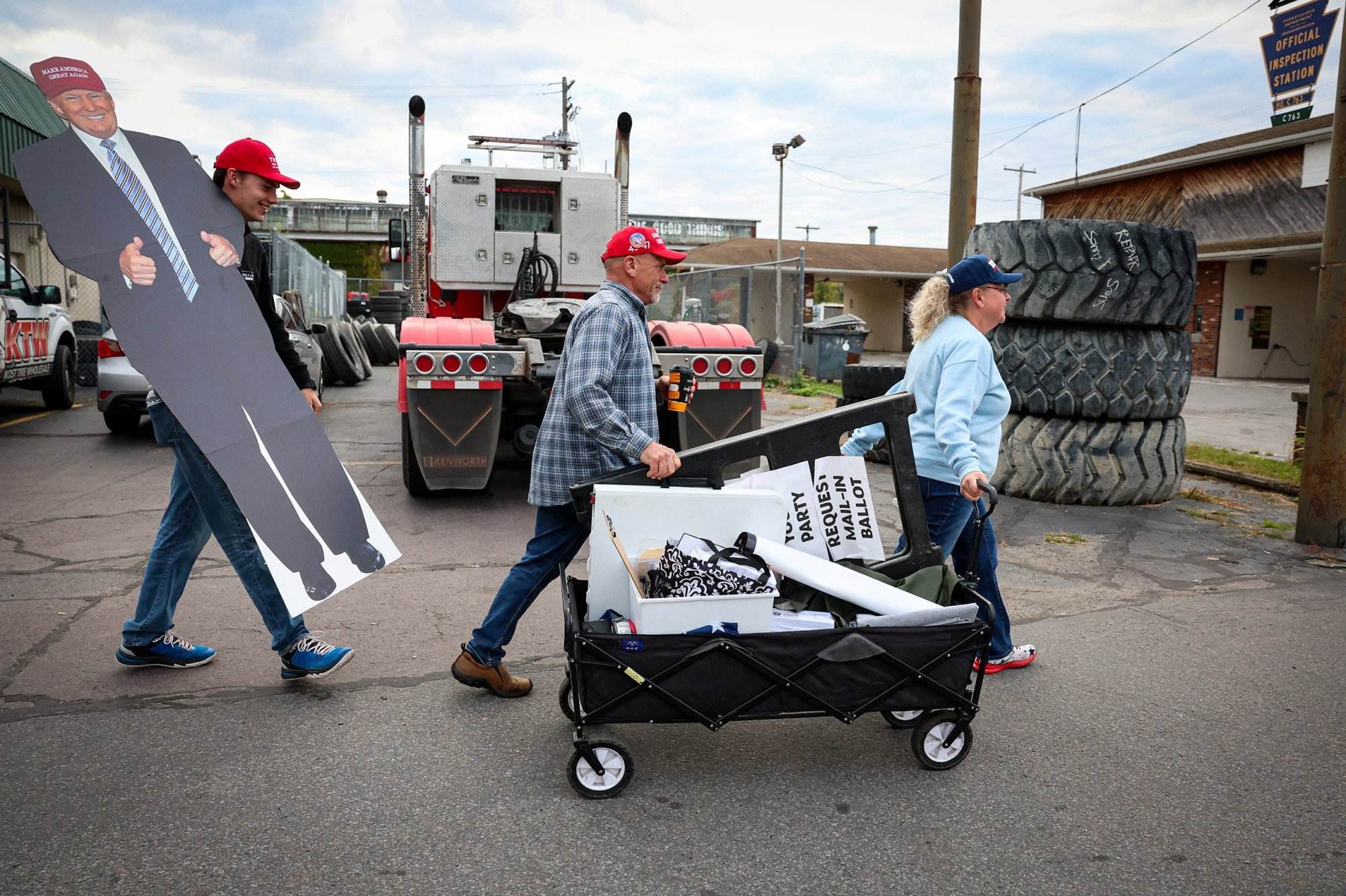
Politics tamfitronics
On a Wednesday afternoon in late September, the Board of Elections in Lackawanna County, Pennsylvania, held a public meeting. Sitting on the raised dais of a wood-panelled room, Chris Chermak, a Republican county commissioner—in Lackawanna, the Board of Commissioners also serves as the Board of Elections—read a brief proposal into the record. If approved, the measure would get rid of drop boxes for voting in the county, in order to “increase public confidence in our elections,” Chermak said. His fellow-commissioners, both Democrats, listened with pursed lips.
Bob Bolus, a white-haired man in a bright-blue T-shirt that depicted Jesus Christ next to a bloodied Donald Trump, his fist raised, was the first member of the public to comment. “The ballot boxes aren’t a necessary evil, they are an evil,” Bolus said, his voice rising. “This is about the integrity of the United States of America.” One after another, other residents, many part of a newly formed group, the Lackawanna Election Integrity Task Force, stood and cast doubt on not just the drop boxes but the county’s voting procedures more broadly. One man said that he needed to know the party affiliation of workers who would transport and count ballots; another said that there was only “one reason to have drop boxes—that’s so you can stuff multiple ballots in. That’s it. Let’s call a spade a spade.” All seemed driven by Trump’s claims that the 2020 election was stolen from him and that the 2024 election would be, too.
The two Democratic commissioners voted the measure down. Toward the end of the meeting, one of them, Bill Gaughan, a thirty-seven-year-old father of five and a former civics teacher at an area charter school, took the microphone. “I have to be honest with everybody: the level of ignorance, stupidity, and misinformation that was portrayed today as democracy is striking and shocking,” he said. “As I sat up here today and listened to some of you get up, it pained me. It actually bothers me,” he said. Someone shouted, “You’re disgusting!,” and Gaughan had to call the room back to order. “Please educate yourselves on the process,” he said, before adjourning the meeting.
Earlier this month, I drove to Lackawanna, in northeastern Pennsylvania, from New York City. On Interstate 80, as I approached Scranton, the county seat, the fall trees appeared flame-licked; American flags and billboards for trampoline parks lined the highway. So did political advertisements. Here was a headshot of Kamala Harris, touting her support for strengthening Medicare; there was a Donald Trump billboard touting the fact that Dana White, the C.E.O. of the Ultimate Fighting Championship, had backed the ex-President. Just outside Scranton, I saw a Trump sign boasting about Elon Musk’s support. Even four years ago, it would have been difficult to explain to Americans how such specific endorsements had come about, but the signs, in their signature blue and red, were proof of the strange dynamics of the 2024 campaign.
For generations, Lackawanna County, Pennsylvania, was a Democratic stronghold, filled with white, working-class, Catholic voters. In 2012, Barack Obama carried it by nearly thirty points, but, eight years later, President Joe Biden, who himself hails from Lackawanna—you take the President Biden Expressway to get to downtown Scranton—edged Donald Trump by just eight points. Since Trump first ran for office, in 2016, the Democratic Party has been bleeding support from white, non-college-educated voters, a group that’s been transformed into the base of the MAGA movement. In the 2024 election, Lackawanna feels like a swing county within a swing state, with money pouring into it from both campaigns. Trump’s team believes that the county is filled with his fans, including many who don’t normally vote, and that they will turn out for him this year. The Harris campaign points to Trump’s softening support among non-college-educated white voters in recent polls, along with strong showings in 2022 by the Democratic governor, Josh Shapiro, and Senator John Fetterman. At stake on Election Day, however, is much more than which party can lay claim to Lackawanna’s blue-collar identity. The Trump era has twisted and tugged at the county’s social fabric, so much so that the answers to basic questions about what is true and who can be trusted no longer appear certain.
It was a gray morning when I met Susanne Green, a Lackawanna County G.O.P. volunteer who helps coördinate the Election Integrity Task Force, in downtown Scranton. A native of Lackawanna, Green, who is sixty years old with golden-brown hair and an efficient air, worked for a time at a Planned Parenthood branch in Washington, D.C. “I grew up a Kennedy Democrat, my whole family was Kennedy Democrats, the whole valley was Kennedy Democrats,” she said. “The Democrat Party doesn’t seem to be Kennedy Democrats anymore. They’re different. They’ve changed. Our value system has not.” After retirement, she returned to rural Lackawanna, which she found was struggling. In 2016, she and a friend founded a food share, where locals could come for free groceries. “A lot of the neighbors—there’s some trailer parks that are nearby—they’re having such a hard time.” During the COVID-19 pandemic, she said, they fed about twelve hundred families every two weeks. “I saw a real need for resources in our rural community, which is still Lackawanna County, but we didn’t really get any,” she told me.
When Trump first came along, Green sensed that it was he, not any Democrat, who would best represent the interests of her community. “I think that Trump is for women’s reproductive rights,” she told me. How, I asked, did she square that view with the fact that Trump had appointed the judges who overturned the right to abortion? “The Supreme Court is not just one Justice, O.K.? It’s a group of nine, and they talk about things together. So, they found that Roe v. Wade should really be up to the states.”
We walked over to a pop-up tent, where a small group of Trump volunteers stood bundled against the fall chill, waiting to register voters or help people change their party affiliation. In recent weeks, Green has moved the tent to various locations throughout the county, including the local junk yard, which proved to be an especially target-rich environment for registering Trump supporters who haven’t voted in years, people whom the campaign refers to as low-propensity voters.
A seventy-year-old Black veteran named Dennis Frison stopped by the tent and tried on a Trump-themed hat. “It took me ten years to get a ten-per-cent service-connected disability,” he said. “And I look around, I see people speaking another language, who just came from somewhere—God knows where. I know it don’t sound nice, but it’s facts.” He remains torn between Harris and Trump.
Under the tent, Linda Bonczkiewicz, an organizer for Trump Force 47, the campaign’s effort to recruit volunteers to get out the vote, and JoAnne Mayer, who wore a red coat and black patent-leather boots, started talking to me about January 6th. Both had been at the Capitol that day. “Peaceful, loving, kind, right until the news media got there,” is how Bonczkiewicz described the day to me. Mayer whipped out her phone and scrolled through her camera roll to show me in one picture how close she had been to the wall of plastic police shields, and in another, pointed to a woman she said she thought was Ashli Babbitt, the rioter who was shot and killed as she tried to climb through a smashed window. The pair didn’t believe that the race between Harris and Trump was as close as polls indicate. Mayer showed me a graph from the prediction market Polymarket which gave Trump a fifty-seven-per-cent chance of winning the election. I asked them how they were feeling about Election Day. “If God’s involved, it’s gonna be perfect,” Bonczkiewicz said. “People, I don’t trust. People are evil. And they’re gonna find something.”
Earlier that morning, Bob Bolus, again wearing his bright-blue Trump-Jesus shirt, had appeared at a meeting of the county commissioners. He confronted Bill Gaughan about the way he had ordered Bolus’s removal from another public meeting, two weeks prior. “You ordered the sheriff to grab me by my shoulder—I’ve got injuries to my shoulder, five shoulder surgeries, and I’m under medical care right now,” Bolus said. “I want you to understand, you and I will be going around again.” When I met Gaughan for coffee later that afternoon, at a local Starbucks, he seemed unbothered, even though he had become the focus of ire of a vocal contingent of citizens. “Anyone who stands up and tells them the truth, then they completely go berserk,” he said. “They don’t want to hear the truth. And that’s not just here in Lackawanna, that’s everywhere. They don’t want to hear any answers because it doesn’t fit into their narrative; it doesn’t fit into President Trump’s narrative.”
Gaughan, who grew up in the Minooka neighborhood of Scranton and graduated from the University of Scranton, became a county commissioner only ten months ago. Prior to his election, he had served on the Scranton City Council, while also teaching American government to high schoolers. When he started his term in January, the county government owed $18.5 million in unpaid bills. The day before we met, Gaughan and his fellow Democratic commissioner, Matt McGloin—a former Penn State quarterback—had announced a thirty-three-per-cent property-tax increase, which generated an outcry. I asked Gaughan if he was worried that his blunt approach with the public could jeopardize his reëlection.
“You have a responsibility to tell the truth as an elected official and as an American,” Gaughan said. “I have five children. This might sound kind of corny, but, years from now, I don’t want them to look back and say, ‘Did you stand up for democracy when you had a chance and you were in a position to? What the hell did you do?’ ” He added, “Even though what I’m doing is very, very small in the grand scheme, I want to be able to say, ‘I had a backbone. I stood up.’ ”
The view from Joe and Michele Ferguson’s modest split-level home, in a hilly neighborhood of the town of Dunmore, offers a sweeping vista of the rolling landscape that surrounds greater Scranton. Up and down the couple’s street were a smattering of yard signs, evenly split between Harris and Trump and interspersed with Halloween decorations. “I’m surprised at the support he has,” Joe told me. Tall and gregarious, he grew up in Dunmore, and, like the rest of his family, has voted Democratic his whole life, though he has watched the area change. “I can see why a lot of people voted for Trump the first time,” he said. “You come to Scranton. It looks like kind of a run-down type of a town, and [people] feel like politicians, even though they come from Scranton, never really helped it.” But voting a second time for Trump? “No way,” Joe said. “To me, there’s one topic for the election, and that’s the insurrection.”
Part of living in Lackawanna now is learning to cope, friend to friend and neighbor to neighbor, with dissonant understandings of what is real and what is not. One of Joe’s favorite outlets is good-natured Facebook trolling of people he has known most of his life. “Every day, I take great joy in just needling the Trump people by providing them with facts. And then I always say, ‘God Bless America!’ ” Joe pulled out his phone to show me one conversation. “You’ll laugh your rear end off,” he said. “They used the term—what the heck was the term? I had to look it up. ‘Trump syndrome,’ or whatever the heck.” Trump derangement syndrome, I offered. “That’s what they told me I had!” He laughed and kept scrolling through the replies to his post.
The Fergusons are both teachers, and when Michele got home, laden with papers to grade, we headed to the cozy downstairs den, where the shelves were full of family photos and a dried Palm Sunday palm was tucked into a vase. We settled in to watch the local evening news, which had for weeks been saturated with political ads. “There’s a real good one right now for Harris with the generals,” Joe said. “That’s probably her most effective ad.”
Along with stories about a school lockdown, an alleged pedophile, and a thirteen-year-old arrested for a stabbing, the news was mostly filled with talk of elections. One segment featured Romilda Crocamo, the county manager of nearby Luzerne County, who recently gained notoriety for refusing to install ballot drop boxes authorized by the County Board of Elections; the A.C.L.U. has sued her. A Trump attack ad on Harris cycled through a couple of commercial breaks. “More weakness, more war, more welfare for illegals, and even more taxes,” the voice-over intoned.
The Trump era has even affected some of the dynamics at the high school where Joe teaches; particularly when Trump first ran, students brought Trump banners to school, causing a stir. The frenzy has abated, but “definitely younger males—they’re for Trump,” Joe said. “Now, the girls are really not saying anything. Which is interesting.” During the five-o’clock hour, we watched a call-in segment, TalkBack, which played voice mails from listeners, most of whom seemed incensed by the commissioners’ tax increase. “It’s nice to have a sugar daddy—If I can’t afford something, there’s someone I can go to and just get the money,” one caller said. “Why wasn’t somebody watching the cookie jar?” another asked. Still another just wanted to complain about calling the Wilkes-Barre/Scranton Penguins hockey team the “Baby Pens.” “There’s nothing babyish about those guys—they are strong, they are rough and tumble, and they are certainly not babies. Being called a baby is a derogatory term, and I wish your announcers would stop.” The Fergusons doubled over in laughter. Shortly, the Harris ad featuring the generals played. “We don’t take an oath to a king or queen or a tyrant or a dictator. And we don’t take an oath to a wannabe dictator,” General Mark Milley, the former chairman of the Joint Chiefs of Staff, said in one clip. Soon, it was time for me to drive home.
The Fergusons stood on their steps and waved as I pulled out. I eased past the yard signs and watched the sun set over the hills, like a curtain being drawn over the rows of neat houses. “I’m very friendly,” Joe had told me. “I will never be upset about someone over politics. Ever. That’s just how I am.” But, he added, “It used to be nice when I didn’t know that my neighbor next door was a dummy.” ♦
Discover more from Tamfis Nigeria Lmited
Subscribe to get the latest posts sent to your email.



 Hot Deals
Hot Deals Shopfinish
Shopfinish Shop
Shop Appliances
Appliances Babies & Kids
Babies & Kids Best Selling
Best Selling Books
Books Consumer Electronics
Consumer Electronics Furniture
Furniture Home & Kitchen
Home & Kitchen Jewelry
Jewelry Luxury & Beauty
Luxury & Beauty Shoes
Shoes Training & Certifications
Training & Certifications Wears & Clothings
Wears & Clothings





